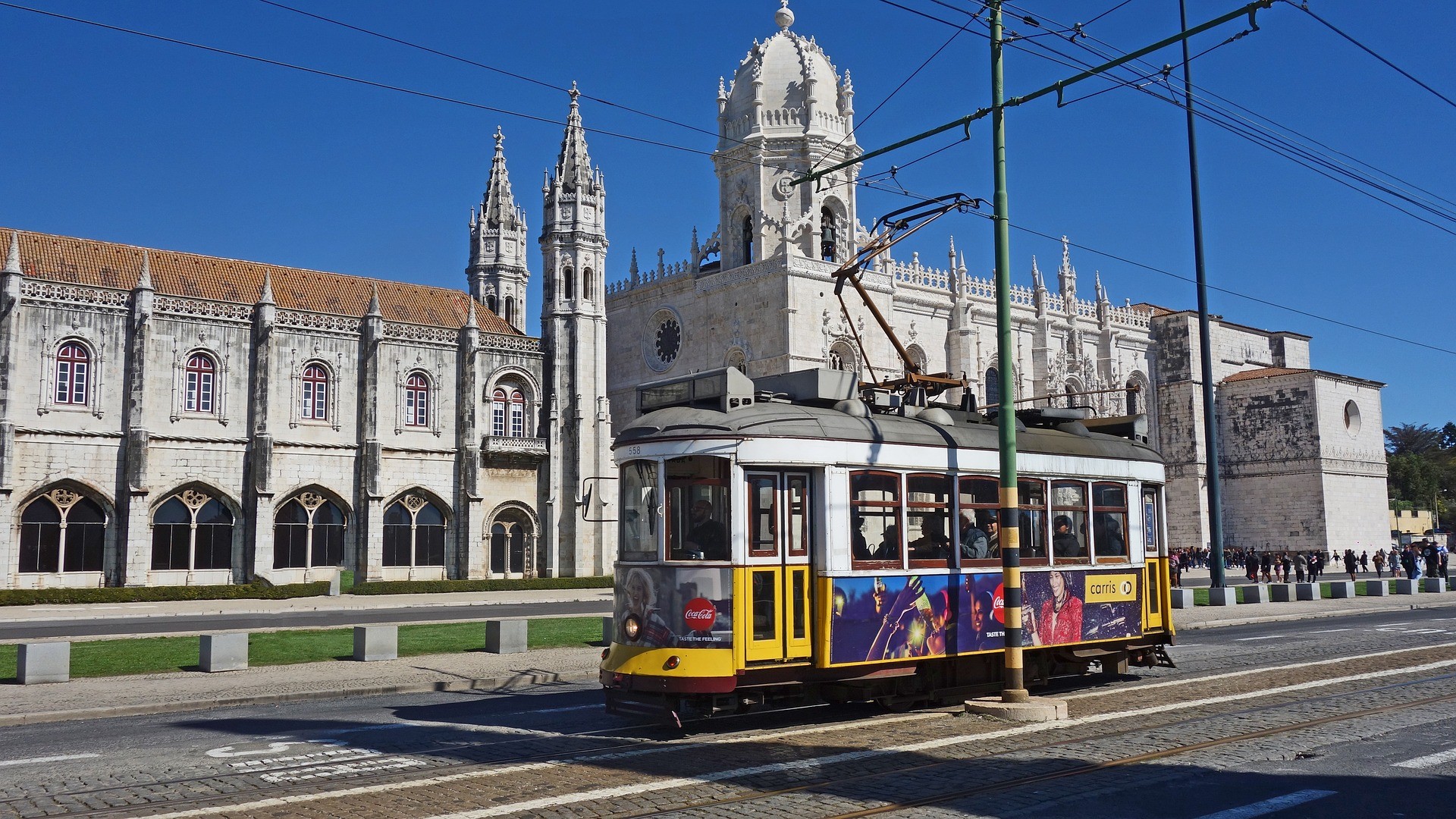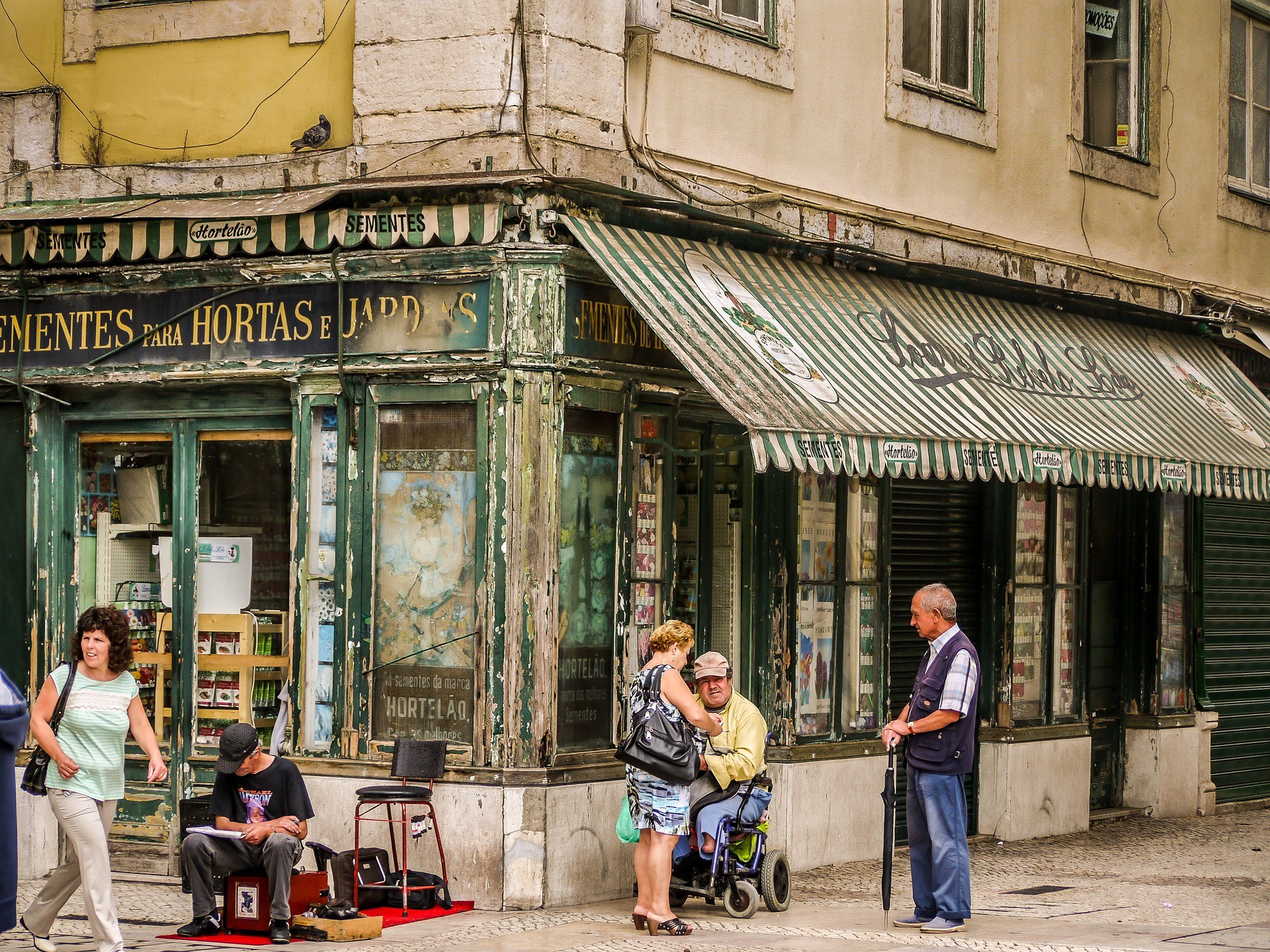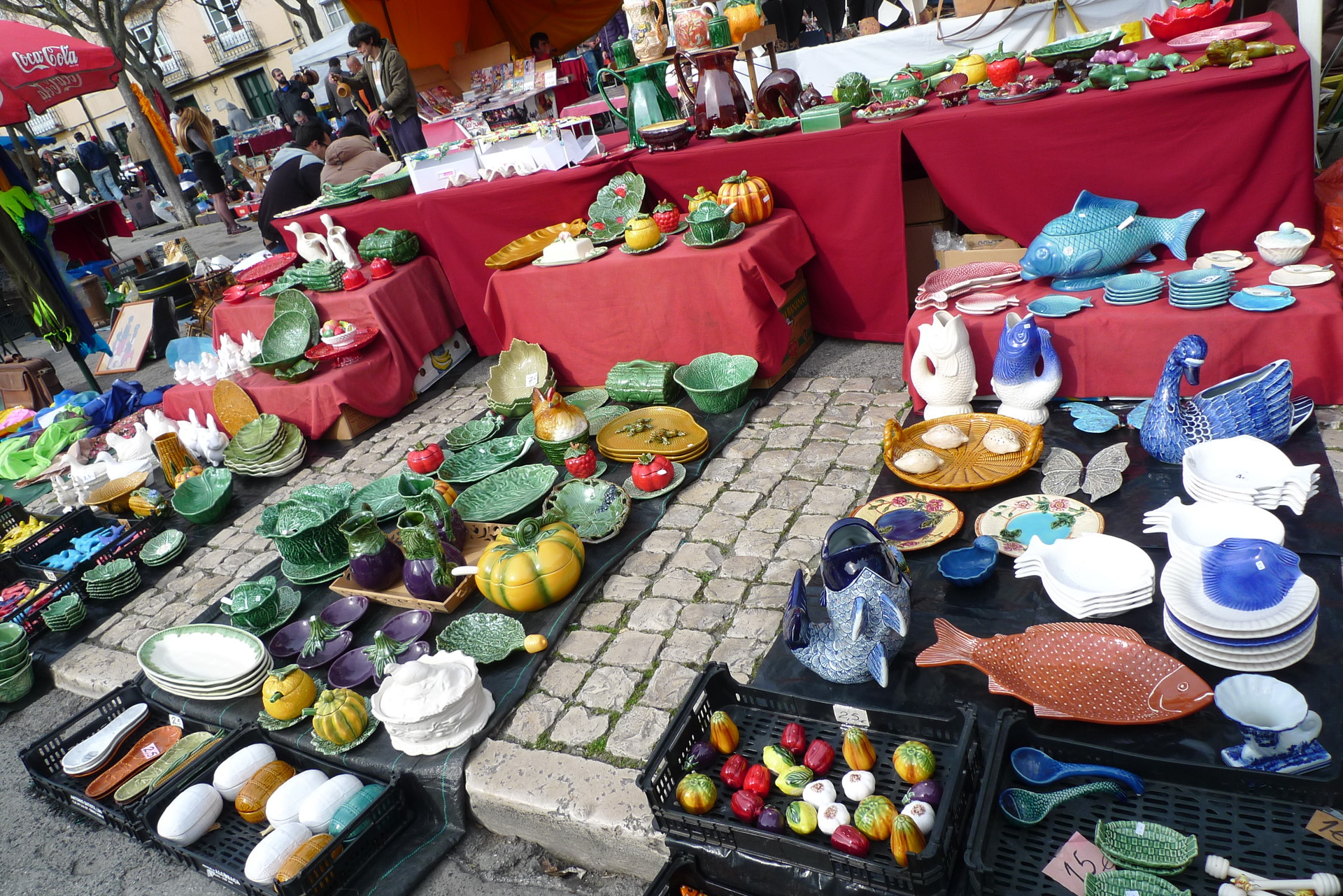10 Disadvantages of studying in Lisbon!
In a previous sequence of articles I wrote about Milan, and the "10 Advantages of studying in Lisbon! ", now I will talk about the "10 Disadvantages of studying in Lisbon! ".
In general, I consider Lisbon is a good city to study, however, there are some situations that could be improved, and if it did, every academic community would be grateful! In this post I will leave my thoughts about some points in the Portuguese capital that could be improved in order to make the capital even more fantastic.

For those students that are thinking about doing an Erasmus in Lisbon, I think this can also be a way to inform them about the downsides, and that way they can make a more wiser choice. Some of the points can be acceptable for some, and completely inconceivable for others, I guess it really depends on your cultural environment and personal routine. These are some things that I wish I had known before I moved to Lisbon. Here it goes!
Note: Some of the considerations are focused on my particular case, and most of the times is about my Faculty of Architecture at the University of Lisbon, where I was studying for three years, and is the case that I know better. Most of the times the examples can be more generalised, but if I'm writing about a more specific case, I will let you know.

1 - Public transports usually go on strikes and are not the most punctual.
I can't say that Lisbon doesn't have a good transport system, however, this could be improved in some aspects. The public transport's company - Carris - in the last couple of years (2016 and 2017) has made some strikes, in order to demand better salaries and work conditions. By the time that I left Lisbon, in September, they had made several strikes, a huge inconvenience, because a lot of people couldn't get to the University or to the work.
For the students that are looking for a house this can be an important information, because they have to think if it is more worth paying a bit more and be closer to the University, at walking distance, or further, and having no options to go to the Univeristy during the strike days.
The positive side, is that the strikes are always partial, which means they don't last all day long, neither affect all the public transports. For example, if the subway is on strike, the bus will not, and vice versa.
Another important question is that public transports here aren't always that punctual. For almost every station of the city you can check the schedules, or even online, on the Carris' Website. However, the easiest way to know the exact time when the transport will arrive is through this App called "Move-me", download available for Android Market and Apple Store.

Warning: this is not a third world country, you can use the public transport for almost everywhere - for two years I didn't have a car, and for a while I was doing an internship in the opposite side of the city where I was living in. This can be a sensitive topic for the ones that are used to punctual and efficient systems, but you will get used to it.
2 - People aren't very punctual.
This is a characteristic that even to me, as Portuguese, is really annoying! Although we are not that bad as other southern countries, the truth is that most of the Portuguese are not worried about getting late, because about 10 or 15 minutes is not being late.
It's pretty normal in the academic world to have to wait the professors for a couple of minutes, so much that you don't leave the classroom unless if the delay is more than thirty minutes. This is a cultural aspect; some say is because we are more relaxed, but definitely is something that we should have more into consideration.

In my opinion, in the end, this affects our productivity as a country, but is something that is so rooted that I think it will be hard to invert the situation. As I mentioned before, this is not such a dramatic situation, but is better to let you known about the extra minutes that you will have to wait during your days.
3 - Some city areas don't have much public transportation access.
Although the capital has a good transport system, some Lisbon areas continue to be a bit inaccessible, or at least the transports are not that frequent. I'm referring to historical neighbourhoods located at the hills, where usually the streets are really narrow and leaning, and where transports can't pass through.
I'm talking about the hill of the Castle or the Alfama's neighbourhood, or in the opposite site, the Ajuda's area. These are spaces where the subway - the most efficient public transport in Lisbon - doesn't pass, because of how tight the space is. These neighbourhoods are completely dependant of mini-bus or the tram, and during the rush hour they always get stuck in the middle of the traffic.
In some areas the transport operates really early, what makes it harder to come back home after a dinner out, a night out or even after late classes. It's fundamental to check the Website of Carris before choosing an apartment, and talk with the landlord asking about the transports that pass nearby the house. This way you can make sure you will always have a back up plan to go to the Uni.

4 - Although Lisbon is the capital, is a bit isolated from the rest of Europe.
Lisbon, when compared to other colossal European cities and although being small, is a city full of energy. It's dynamic and usually accepts every minority. Nowadays, in the mind of the younger generation, Lisbon is not that isolated, but we can't forget about the geographical position that occupies in the European panorama.
On one side, it's a great refuge for the ones that are looking for a little corner by the sea, for a different Erasmus experience. It's not perfect to travel, when compared to Milan, which has a central position and counts on with three airports in the urban area.
Don't get me wrong, there is a lot to see in Portugal, as well as in its islands, and in here is even easier to visit Spain and the north of Africa. But Lisbon is not the ideal destination for those that want to travel all across Europe while they are on Erasmus, just because it's a different place.
The airline company Ryanair is already settled in the country, and between Lisbon and Porto we have some fast trains, but not as many as in other European capitals. Going to Spain, from Portugal, is still a big inconvenience because in our country the system is not that developed. However, it hasthe ideal location for those of you who want to dive in to the Portuguese culture, and get to know more small cities or unknown regions, for a reasonable price and a must see.

5 - The relief of the city defies weaker physical conditions.
Lisbon is a city of hills! The only flat zone is Baixa, that was destroyed by the earthquake of 1755, but this is an exception. Walking through the city is wonderful, you can enjoy its neighbourhoods' environments, but is a bit challenging from a physical point. (It's important to remember that the paths are usually made by narrow streets and vertiginous staircases, that despite being so beautiful and typical, can be a challenge for those who aren't in shape. )
For those who don't like to walk, this might not be the ideal city. This fact makes Lisbon a non -traffic city, some preventive measures have been established in the last couple of years, as a way to avoid cars' circulation, especially in the historical places and the areas with more traffic.
A lot of people, due to their daily lives, are forced to use their own car because they don't have another choice. Just recently bike paths in the city were created because Lisbon wasn't at all a bike-friendly city, because once again, it has rough land.

6 - Almost every class is theoretical and given in a conventional way.
Portuguese university education is known for having a higher quality, and is really well-known in other countries. It's, however, important to inform you that is still a bit more conventional, and more theoretical compared to other countries, I think of, for example, the countries in the North of Europe.
I believe that it's necessary a more theoretical component, as a way for the professionals to learn different knowledge of their fields. But, at the same time, it is as important to guarantee that the students have strong practical tool when they are going to the labour market, as a way to be more proactive.
In my field - Architecture - I think it would be good for the Faculty of Lisbon to incorporate new classes or they could at least review the teaching programmes in order to end with these gaps. I'm not saying that a practical component doesn't exist, but comparing to other teaching systems, a lot more could be done.
In most of all the faculties in Lisbon - depending on the field - the classes are divided by practical and theoretical, and sometimes the hybrid theoretical-practical. The theoretical classes are the ones with more students, and consists in the teacher speaking to a big number of people, usually they are all from the same year.

7 - The city can be chaotic at the rush hour.
As I explained before, the Portuguese aren't known for their punctuality and the public transports could be improved. This two characteristics combined at 8 am. result in endless lines of traffic in the accesses to the capital.
You should avoid making plans that involve punctuality, between 8 am. and 9:30 am., as well as during the weekends between 5 pm. and 6:30 pm., unless you can leave half an hour before! Traffic jams and even some accidents are frequent.

This is a fundamental and important point for the students that need public transports to go to University. A piece of advice: before making the final decision about where to move in, the best is to do first the paths, by transports, between the possible houses and the faculty, during the rush hours, this way you can see which option is the best.
8 - Don't speak Portuguese can mean higher prices.
To live in Lisbon you don't need to know Portuguese, as I mentioned before, most people speak English. However, speaking Portuguese can be a plus point when you have to bargain prices, because you don't want to be deceived!
Portuguese are a nation of merchants, always ready to make the best deal. Usually, they have this preconceived idea because citizens of other countries gain more money, so they can afford paying a higher price. This is not done with wickedness, it's just a cultural thing.
I would advise you to try to speak Portuguese in the moment of renting a house or when you have to bargain prices in some market. If you learn it, it's going to be easier to get cheaper prices because this way it looks like you have some knowledge about the country's reality and you're not completely oblivious to the language.

I know from experience that most of the Erasmus students in Lisbon pay more for accommodation than the Portuguese ones. Working around this can be easy: you just have to ask to someone nice to help to establishing contact with the landlord, and this way you can prevent yourself to be deceived! And this is also a good reason to improve your Portuguese level.
9 - There is a lot of bureaucracy.
Portugal bureaucratic country. Dealing with any document can be a real adventure for a whole morning or a whole afternoon. In my opinion, the available information is also not very clear, and we never know where to go to deal with different situations.
Once again: in this case a local can help us figuring that out. However It's better to have already all the information prepared and all the possible forms field, this way the process can go smoother, and you can avoid coming back to the place to resolve unfinished situations.
The secretaries of the faculties and the online systems tend to be pretty bad, but you will get used to it. The best thing to do is always making questions, this is way you can be better informed and you can avoid complicated situations.
10 - You can get addicted to the city.

Of course, I had to finish this article with a bittersweet feeling (especially because it was really hard to find ten disadvantages about my beautiful home town). A warning for the sweetest hearts: Lisbon is a city that you will miss!
The majority of the Erasmus students that I met during my bachelor are those with whom I'm still in touch, they felt pretty amazed by the city. A lot of them intended to come back in the next few years and some already did.

Lisbon is a city with a high stander of life quality, and I must confess this is somewhat hard to forget. Doing my Erasmus in Lisbon is a problem for your budget of the next years because you will want to come back as many times as you can to the city that made your Erasmus a truly unforgettable experience!

Photo gallery
Content available in other languages
- Português: 10 Desvantagens de estudar em Lisboa!
- Polski: 10 wad studiowania w Lizbonie!
- Italiano: 10 svantaggi di studiare a Lisbona!
- Español: 10 Desventajas de estudiar en Lisboa!
Want to have your own Erasmus blog?
If you are experiencing living abroad, you're an avid traveller or want to promote the city where you live... create your own blog and share your adventures!
I want to create my Erasmus blog! →




























Comments (0 comments)